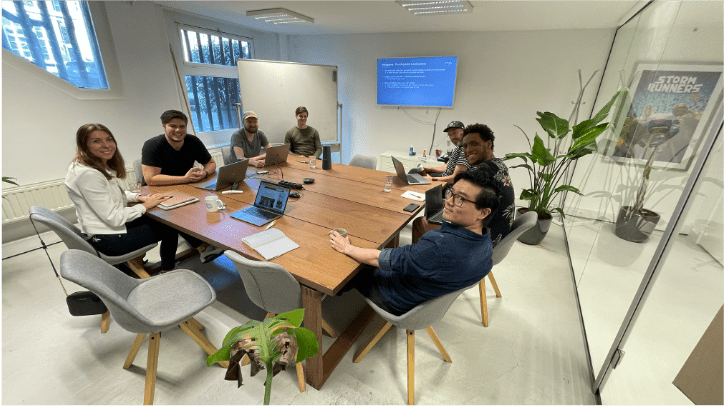On April 16th, a delegation from the Dutch Ministry of Economic Affairs (Ministerie van Economische Zaken en Klimaat) visited CoolGames in Amsterdam to gain deeper insights into the Dutch games industry. Their goal: to better understand how game studios operate, and what challenges may be holding back growth in this dynamic sector.
While the visiting team was already well-informed in the broader issues facing creative and tech industries, they wanted a closer look at the gaming ecosystem specifically, and left with valuable takeaways and even some good news for game studios.
After a guided tour of the CoolGames Studio, including an introduction to the wide range of disciplines required to develop a successful game, the discussion turned to some of the Dutch industry’s key strengths:
- A vibrant indie scene and good games educational system
- An inherent international approach from practically all studios
- High levels of creativity and innovation in all aspects of game development
- Next to several PC and console success stories, a well-developed web-games ecosystem
However, several growth challenges also came up, including:
- Limited access to risk capital
- Relative high labor costs compared to many other gaming hubs
- Regulatory hurdles when hiring international talent from outside EU
- Lack of structural subsidies or cost-saving support
But the most pressing concern for especially scale-ups nationwide? According to the Ministry’s team, it’s the lack of flexibility in Dutch labor laws, notably regarding permanent contracts (notably under the “Wet Poortwachter”). This makes it difficult for studios to swiftly adapt team composition to changing needs, especially in an industry that faces frequent cycles of boom and slowdown.
A promising development for talent retention
The best news came at the end of the day: starting January 1st, 2027, a new fiscal scheme will make it easier and more tax-friendly for employees to acquire shares or certificates in the studios they work for. This means developers can become partial owners, aligning incentives and helping studios to better attract and retain top talent. In many global tech ecosystems, offering co-ownership is already a standard practice. This reform marks a small but important step in keeping the Dutch games industry competitive, attractive, and future-ready. Read more about this new policy here (in Dutch): Rijksoverheid.nl – Fiscal measures for employee participation.
At the Dutch Games Association, we’ll continue to track these developments and advocate for a thriving, innovative, and inclusive Dutch games ecosystem. Stay tuned!
